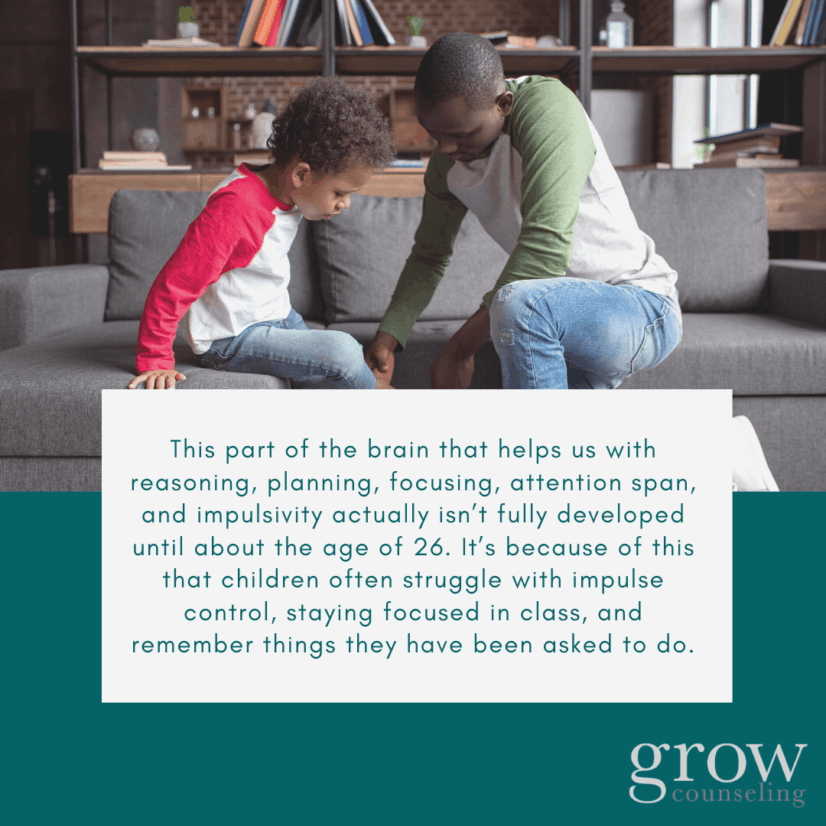Ever think about how much we rely on things to get us through the day? That pot of coffee, a reliant car, a trusted friend, and a home to come back to.
Lets use the car as an example. A car is composed of many different parts. Each part has its own role, such as starting the car, guiding the car, and stopping the car. One part without the other wouldn’t make it whole and certainly wouldn’t allow the car to get from point A to point B safely. We’ve probably all experienced a time where our car has failed us. The battery dies, the tire goes flat, or the brakes need replaced. Our entire day (or week) gets thrown off and often leaves us feeling stressed and overwhelmed.
Now let me ask you this – have you ever thought about how our brains might be similar?
Our brains, too, are made up of many different parts, all of which have their own unique function. Some of these functions include decision making, planning, processing what we see and hear, and regulating emotions. Without the functioning of one part of our brain, we may be limited in how well we function day in and day out.
Unfortunately, for kids and teens a crucial part of the brain hasn’t fully developed yet – the prefrontal cortex.
This part of the brain that helps us with reasoning, planning, focusing, attention span, and impulsivity actually isn’t fully developed until about the age of 26. It’s because of this that children often struggle with impulse control, staying focused in class, and remember things they have been asked to do.
This is why it’s so important for adults to understand that kids aren’t always intentionally trying to get under your skin, but oftentimes it’s the inability to complete these tasks. We have to remember that just because tasks seem so easy to us, doesn’t mean it’s as simple for kids because our brains look so different.
Next time you feel like your child isn’t fully listening to you, tap into that feeling of overwhelmedness and frustration that you’ve experienced when your car fails you. Allow this to help you step into their shoes and understand the world from their brain.
Written By: Amberly Hamilton

